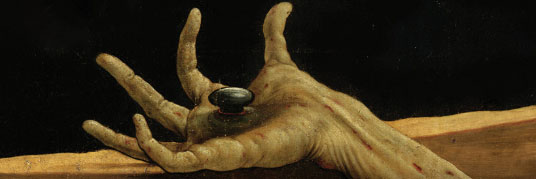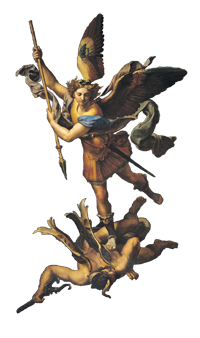The Path on Which All the Difference Has Been Made

The pop-cultural interpretation of Robert Frost’s famous poem, “The Road Not Taken,” is that it is an encouragement to diverge from the herd — to discern the path that others have eschewed and choose that one.
A professor of literature will teach, or at least would have taught some twenty years ago, that the poem is actually ambiguous. The narrator never states which path he took, or even whether he intended to take “the one less traveled by.” He says that he will “be telling this with a sigh,” not now, but in the distant future, without detailing what kind of a sigh he means or what difference was made. The reader can’t really say whether the narrator has already confirmed that he took the less-traveled road and that it made a difference or rather is still predicting what will prove to have been the case. A different kind of society than ours might very well read this poem as a lamentation over inadvisable rebellion.
Perhaps what captures the imagination in “The Road Not Taken” is not the decision, but the affirmation that the decision matters. This wasn’t the only choice the narrator had to make. “Way leads on to way”; one choice follows the previous. In our more-or-less comfortable half-century, we hunger for the sense that it makes a difference whether we go this way or that, stand up or sit down, live or die.
For this reason, a tweet caught my eye a few weeks back from blogger, writer, and Roman Catholic priest Father Dwight Longenecker announcing the release of his latest book, Immortal Combat. The title and the cover both scream that what we do (what we decide) does, in fact, matter.
Fr. Longenecker describes the world that Jesus entered and the way he acted as the archetypal “secret son” — the unknown savior who sneaks past the enemy unseen until it is too late. He writes of the historical Gehenna, where the cult of Moloch would slide children into their idol’s mouth to the fire within as a sacrifice. With the death and resurrection of Jesus, it was as if the Father had sent in a child whom the flames could not harm, and who could ensure that no child need ever burn again.
“The torture, death, and resurrection of the Lord Jesus broke open the floodgates of a new power of life and love in the world” (p. 121). The modern Western ear has heard such phrases again and again, to the point that they seem clichés of poetic dogma. What does that mean? How does it work? Jesus walked the Earth two thousand years ago. If he defeated Satan, then what are we still doing wandering around in our Original Sin?
We are not, Fr. Longenecker assures us, engaged in a mop-up operation, simply cleaning up the mess of the battle after it has ended. Nor are we simply biding time until He comes again. And we’re certainly not living in the Eden of Christ’s victory. Rather, “every action of self-sacrifice — no matter how secret and small — helps to bring alive in every moment and hammer home the eternal victory of the Crucified” (p. 125).
Expanding beyond the argument of Immortal Combat, this line of thought recalls the notions of paganism discussed in this space last week. The pagan world was one of battling tribes under competing gods. In our “post-Christian” world, that sense of society is returning, only our paganism has gotten more abstract.
The battle between tribes once was a battle between their gods. Whoever won a battle, that army’s gods were said to be with them. In humanity’s early awareness of Yahweh, the God called “I am” was simply the greatest god. Pharaoh obstinately refused to heed Moses as long as his magicians were able to replicate Yahweh’s miracles. Only when Aaron and Moses brought forth gnats from the dust did the magicians credit the unique power of God, and even then pharaoh needed more evidence.
This sort of divine battle faded with the concept that there is only one God, and our task is to discern His will. The battle then became a question of who was right. Bloody as those disputes have been, the change is still an improvement, because at least everybody is focused on the same divine person, presumably with an agreed-upon text as a guide.
But now, relativism has brought the pagan divergence back in a worse way. Instead of all having different gods, we suddenly find ourselves in different realities. The battle isn’t to defeat the others’ God; it’s to obliterate their entire understanding of the meaning of the universe. It is no longer “your god is defeated”; it’s “God is dead.”
If the will and power of the gods was once known by who won in battle, the warriors were, in a sense, acting as the bodies of those gods. In the abstract battles of relativism, we more-literally give body to competing realities defined by different meanings, different intentions for creation, which is to say, different capital-G Gods. Thus, when we “bring alive in every moment and hammer home the eternal victory of the Crucified,” in Fr. Longenecker’s words, we are giving Christ a Body that makes Him real. To an ecumenical relativist, this can mean that every variation of God is equally valid. To the nihilist, a God who requires human beings to will Him into existence cannot be real in the first place, so there can be no such thing as God.
Years ago, I proposed that we should see reality as a mesh: infinite threads of probability leading from one moment to the next, with free will being our ability to choose which path to take. In that model, souls communicate and pull each other toward one direction or another. The idea might appeal to relativists except that God is the ultimate reality, being the One who existed before He created this web of possibilities called the universe and the One who will continue to exist when it has run its course.
To give relativists their due, free will still means (must mean) that we can drift off so far from God that we become practically incapable of hearing His Spirit communicating across the threads. We can choose a different intention of the universe, a different meaning, which is synonymous with a different God, by making that the underlying principle that guides our choices from moment to moment. The more people we draw in, the more real that God becomes. Even so, the physical rules of how the universe works, and the rules of our human nature, are only fully in harmony with the God who created them.
The continuing mission of Christians, therefore, is to live along the path (the physical dimension) in which God saves us all. Fr. Longenecker comes very close to this precise statement when he writes that “The Way of the Lamb… means living in a new dimension of reality — a supernatural renewal of heart and mind that draws us ever closer into an intimate union with the Lord Jesus Himself” (p. 123).
Even if we conclude that our decisions matter in this way, the question of our lives remains: How do we know that we’re actually on the right path and not just talking ourselves into believing it for nothing? How do we know that “somewhere ages and ages hence,” as Robert Frost put it, we will be assured that our path made all the difference, and how can we be assured, unlike Frost’s narrator, that the difference will have been positive?
The answer draws on the two great sides of our personalities — our two basic ways of knowing. We first must have faith, drawing on the intuition of our consciences and our feelings. We must then apply our scientific reason. If we find that the velocity of our understanding is toward harmony of fact, feeling, and faith, then our chosen path is more apt to be true. If we find, however, that “way leads on to way,” and that it is proving necessary to deny physical reality because it is out of harmony with the Reality we take as the purpose of the universe, we should retrace our steps.
Featured image: Cover art from Immortal Combat, by Fr. Dwight Longenecker.


